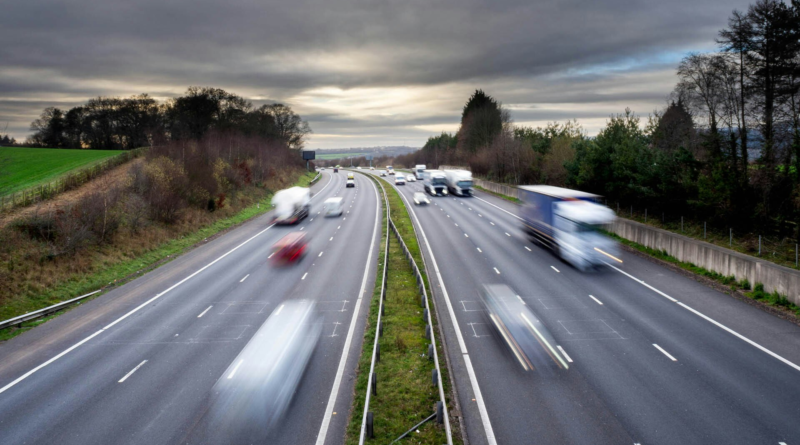EV drivers: New 3p pay-per-mile tax could cost you £250 a year – Carwow
November 06, 2025 by Iain Reid
The Chancellor Rachel Reeves is planning to announce a new pay-per-mile road tax for electric vehicles (EVs), according to a report in the Daily Telegraph.
The plan is expected to be unveiled in the upcoming Budget on 26 November.
The proposed charge is 3p per mile, which would cost the average EV driver an estimated £250 per year. Owners of hybrid cars are also expected to pay the pay-per-mile tax but at a lower rate.
The new tax is intended to plug the financial gap left by falling revenue from fuel duty, as more drivers switch to electric cars (which don’t pay fuel duty).
The government reportedly frames the move as a “matter of fairness,” noting that petrol and diesel drivers pay an average of £600 a year in fuel duty.
If announced, the scheme would undergo a consultation and is not expected to be implemented until 2028.
Remember, you can buy a brand new or used car right here on Carwow. And you can sell your car, too. We’re here to help you through every step of your car-changing journey.
The system, nicknamed “VED+”, would likely require drivers to estimate their annual mileage and pay the charge along with their standard VED road tax.
This follows the independent think tank The Resolution Foundation suggesting Labour’s next budget should completely replace the current fuel duty system with a charge based on how far you drive, and, for electric cars, how heavy they are.
“Weight is a good basis for a tax because it correlates with a range of other things appropriate to public policy, including road damage, noise, pollution from tyres and brakes, danger to others, road footprint, and car value,” the think tank said in its ‘Call of Duties‘ report.
And the proposed plan comes on the back of Carwow research which found that motorists were broadly in favour of pay per mile charging as a replacement for the current VED road tax system.
The research found that 49% believe that a pay-per-mile road tax system would be a fairer way to charge motorists than the current Vehicle Excise Duty (VED).
However, with Reeves’ reported plan focussing on just electric cars for pay-per-mile, just over half (51%) think all motorists should pay the same rate per mile, regardless of fuel type, while 28% believe electric-vehicle drivers should pay less to reflect their lower emissions.
The Society of Motor Manufacturers and Traders (SMMT) said:
“We recognise the need for a new approach to motoring taxes but at such a pivotal moment in the UK’s EV transition, this would be entirely the wrong measure at the wrong time. Introducing such a complex, costly regime that targets the very vehicles manufacturers are challenged to sell would be a strategic mistake – deterring consumers and further undermining industry’s ability to meet ZEV mandate targets, with significant ramifications for perceptions of the UK as a place to invest. A smarter, fair and future-ready taxation system requires a fundamental rethink – one that must be done in full partnership with the industry and other stakeholders.”
Edmund King, AA president, said:
“Whilst we acknowledge the Treasury is losing fuel duty revenue as drivers go electric, the Government has to tread carefully unless their actions slow down the transition to EVs. The ZEV mandate for 28% of new car sales to be zero emissions this year will not be met as sales are running at just 22%. We need to see the detail of this proposal to ascertain whether these new taxes will be equitable or just an extra tax.”
Melanie Lane, Chief Executive at Pod – one of the UK’s largest EV charging providers – said:
“Yesterday’s EV registration figures showed positive momentum and a clear signal that investment and incentives are working. We urged government to reward, not punish, those making the switch – yet today’s pay-per-mile EV tax proposals risk doing exactly that.
“It’s another example of policy that isn’t joined up: feeding with one hand while taking away with the other. This move undermines both the government’s own EV transition goals and driver confidence, just as adoption is accelerating.”
Professor ManMohan Sodhi, Professor of Operations and Supply Chain Management at Bayes Business School (City St George’s, University of London) said:
“A small tax on electric vehicles (EVs) is very much needed, and rational for many reasons. Fuel duty on petrol and diesel brings the government £24.4 billion, which it would lose if all drivers were to switch to electric. In addition, petrol and diesel car drivers already pay about 7p per mile in tax, so 3p per mile for EV drivers is not unreasonable.
“That said, the situation is politically fraught, with the government still claiming to invest in EV infrastructure that drivers will not see. In contrast, drivers will be reminded of the 3p per mile tax. The move will be widely condemned for sending mixed messages about EV adoption, and without doubt there will be movement away from pure EVs at the very least.
“Black box insurance uses a device in the car to make drivers’ habits transparent to the car insurer, where erratic and bad drivers can expect higher insurance over time. The device helps provide a ‘driving score’ that both the driver and the insurer can use. Potentially, such a device could be used with EVs to monitor miles driven for tax purposes, whereas petrol and diesel car drivers are taxed when they purchase fuel.”
Iain Reid, Head of Editorial at Carwow said: “Our findings show motorists recognise the need for a fairer, more sustainable system as fuel duty revenues decline, but they also highlight deep concern about affordability. A move towards pay-per-mile taxation made by the Chancellor will need to balance fairness, simplicity and cost – to avoid penalising those who rely most on their cars. That said, a 3p per mile rate (as rumoured) for EVs would still be significantly less than ICE car drivers are paying in duty on fuel.
“As it always is, the devil will be in the details; how will it actually be implemented? Before EVs, we effectively had a pay-per-mile system through fuel duty: the more you drove, the more tax you paid. Now, it’s trickier.
“To ensure confidence and protect privacy, any new system should make smart use of technology – for example secure, app-based mileage reporting that’s simple for drivers and transparent about how data is used. With the right tech in place, pay-per-mile could be automated and accurate without relying on intrusive location tracking or cumbersome manual readings.”
Looking for a new set of wheels? With Carwow you can sell your car quickly and for a fair price – as well as find great offers on your next one. Whether you’re looking to buy a car brand new, are after something used or you want to explore car leasing options, Carwow is your one stop shop for new car deals.
Click here to follow us on WhatsApp, where you can keep up-to-date with all the latest news, reviews, advice guides and videos.
* Please contact the dealer for a personalised quote, including terms and conditions. Quote is subject to dealer requirements, including status and availability. Illustrations are based on personal contract hire, 9 month upfront fee, 48 month term, 8000 miles annually, inc VAT, excluding fees. Vehicle returned at term end.
** Our marketing claims explained.
Average savings are calculated daily based on the best dealer prices on Carwow vs manufacturer RRP. Where it is shown that the EV Grant is included, this refers to the Government grant awarded to manufacturers on certain EV models and derivatives, the amount awarded under the EV Grant is included in the Savings stated and applied at the point of sale. Carwow is the trading name of Carwow Ltd, which is authorised and regulated by the Financial Conduct Authority for credit broking and insurance distribution activities (firm reference number: 767155). Carwow Leasey Limited is an appointed representative of ITC Compliance Limited which is authorised and regulated by the Financial Conduct Authority for credit broking (firm reference number: 313486) Carwow and Carwow Leasey Limited are each credit brokers and not a lenders. Carwow and Carwow Leasey Limited may receive a fee from retailers advertising finance and may receive a commission from partners (including dealers) for introducing customers. All finance offers and monthly payments shown are subject to application and status. Carwow is covered by the Financial Ombudsman Service (please see www.financial-ombudsman.org.uk for more information). Carwow Ltd is registered in England (company number 07103079), registered office 2nd Floor, Verde Building, 10 Bressenden Place, London, England, SW1E 5DH. Carwow Leasey Limited is registered in England (company number 13601174), registered office 2nd Floor, Verde Building, 10 Bressenden Place, London, England, SW1E 5DH and is a wholly owned subsidiary of Carwow Ltd.




